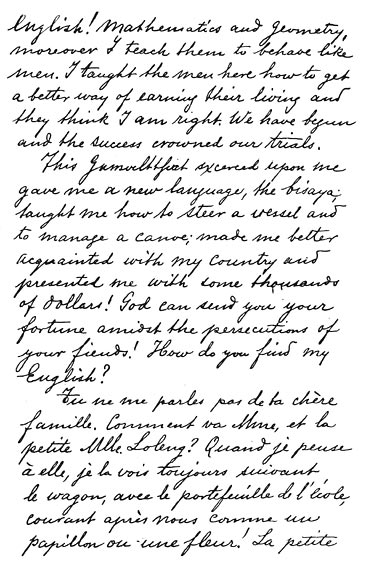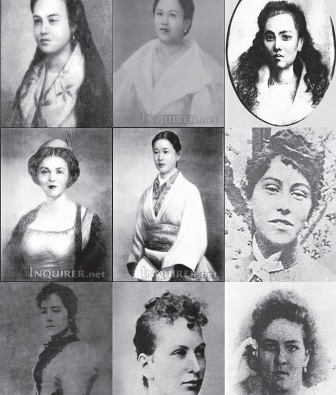- HOME
- INTRO TO THE FORUM
- USE AND MISUSE
- BADLY WRITTEN, BADLY SPOKEN
- GETTING
TO KNOW ENGLISH - PREPARING FOR ENGLISH PROFICIENCY TESTS
- GOING DEEPER INTO ENGLISH
- YOU ASKED ME THIS QUESTION
- ADVOCACIES
- EDUCATION AND TEACHING FORUM
- ADVICE AND DISSENT
- MY MEDIA ENGLISH WATCH
- STUDENTS' SOUNDING BOARD
- LANGUAGE HUMOR AT ITS FINEST
- THE LOUNGE
- NOTABLE WORKS BY OUR VERY OWN
- ESSAYS BY JOSE CARILLO
- Long Noun Forms Make Sentences Exasperatingly Difficult To Grasp
- Good Conversationalists Phrase Their Tag Questions With Finesse
- The Pronoun “None” Can Mean Either “Not One” Or “Not Any”
- A Rather Curious State Of Affairs In The Grammar Of “Do”-Questions
- Why I Consistently Use The Serial Comma
- Misuse Of “Lie” And “Lay” Punctures Many Writers’ Command Of English
- ABOUT JOSE CARILLO
- READINGS ABOUT LANGUAGE
- TIME OUT FROM ENGLISH GRAMMAR
- NEWS AND COMMENTARY
- BOOKSHOP
- ARCHIVES
Click here to recommend us!
STUDENTS’ SOUNDING BOARD
We’ll be glad to help clarify matters about English usage for you
This Students’ Sounding Board is a section created especially for college and high school students. On request, it will provide informal advice and entertain discussions on specific questions, concerns, doubts, and problems about English grammar and usage as taught or taken up in class. If a particular rule or aspect of English confuses you or remains fuzzy to you, the Students’ Sounding Board can help clarify it. Please keep in mind, though, that this section isn’t meant to be an editing facility, research resource, or clearing house for student essays, class reports, term papers, or dissertations. Submissions shouldn’t be longer than 100-150 words.
To post a question in the Students’ Sounding Board, the student must be a registered member of Jose Carillo’s English Forum. To register, simply click this link to the Forum’s registration page; membership is absolutely free. All you need to provide is your user name along with a password; you can choose to remain incognito and your e-mail address won’t be indicated in your postings.
Confusion over the use of “due to” and “owing to”
Question by Prashant Solanki in New Delhi, India, on the Forum’s Facebook Gateway (August 25, 2017):
Hello sir, good evening!
Sir, I have a doubt. I am often confused over the use of “due to” and “owing to.” Some people think the use of “due to” at the beginning of a sentence or a clause is incorrect, but here is a question from my exam: “Due to his negligence, he failed in the examination.” This is question in error detection.
I corrected it by replacing “due to” with “owing to” but they marked my answer “no error.” How is my answer wrong, sir? Please explain.
My reply to Prashant:
The phrase “owing to” is actually grammatically equivalent to “due to,” so it’s understandable that they marked your answer wrong when you replaced “due to” with “owing to” in the sentence “Due to his negligence, he failed in the examination.” The “no error” comment means that there was nothing wrong in the sentence in question, so there’s no need to replace anything because the replacement you made is synonymous to the original term.

IS THE LINKING PHRASE "OWING TO" SYNONYMOUS WITH "OWING TO"?
Thinking that “due to” and owing to” mean exactly the same as “because of,” many people actually use these three prepositional forms interchangeably. Well, sometimes they mean the same thing, and sometimes they don’t, but you’ll know it when they don’t because the resulting sentence would sound awkward. I have written at length in the Forum about the baffling aspects of the usage of these three phrases. Check out the post, “Usage of “due to” and “because of’,” by clicking the indicated link. It’s quite long but I’m sure it will greatly clarify the complications of their usage for you.
By the way, to make sure that I get to read and adequately answer your questions right away, I suggest you post them directly in the appropriate discussion board in Jose Carillo’s English Forum. (It’s very tough for me to compose and post long answers in this message format.) To be able to do this, go to the Forum Homepage and register as a member. You’ll be amazed by the many grammar lessons and tips you’ll find in those discussion boards.
Click to post a comment or view the comments to this posting
When is sentence inversion a matter of grammar or style?
The first week of January 2017 found me so preoccupied with coming up with a little 2016 yearend online folio of personal and general-interest essays that I’ve written over the past 13 years, so I thought of leaving for the back-burner for just a few days my reply to these very interesting grammar questions posted in Jose Carillo’s English Forum by member Justine Aragones:
“Sir, can you please explain the use of ‘did’ and ‘should’ in the sentences below?
“(1) ‘Little did Senator De Lima realize that trying to appease and reason with news hounds would sink her deeper and deeper into the pit.’
“(2) ‘Not only did I want to look at them, I wanted to act like them.’
“(3) ‘Should you need any further information, please do not hesitate to contact me.’
“Was the positioning of ‘did’ and ‘should’ in the three sentences above a matter of style or grammar?
“What about the use of ‘should’ in the sentence below, which I think does not follow the rule of applying that modal?
“(4) ‘She is extremely proud of her diamond and shows it to everyone who comes by and everyone is surprised that such old ignorant woman should possess a valuable jewel.’”
When I went back to Justine’s Forum posting to answer these questions, however, I was pleasantry surprised that they have already been answered by another Forum member, Michael E. Galario, a former high school English teacher and active Forum member. Mike has previously answered some questions in the Forum for me and I always found his work very competent and instructive.
I am therefore presenting Mike’s answers to Justine’s grammar questions here with my full concurrence. By way of credit, I’d like to add that Sentence 1 above is a quote from Cito Beltran’s column “CTalk” in the August 22, 2016 issue of the Philippine Star.
Here’s Michael’s reply to Justine with some annotations of mine:
As we all know, most English sentences follow the normal word order in which the subject precedes the verb and its complement. However, some sentence constructions structurally call for the inversion of this word order.
Sentences 1 and 2 follow the rule that if a negative word or expression such as “little,” “not only,” “rarely,” “scarcely,” “never,” or “hardly” begins a sentence, then the helping verb “do” should precede the subject, which is then followed by the main verb. This is why in Sentence 1, in particular, “little” comes before the helping verb “did,” followed by the subject “Senator De Lima” and then the main verb immediately thereafter. The same rule applies to a conditional statement like Sentence 3, where the conditional auxiliary “should” moves up front of the sentence before the subject “you” and the main verb “need.”
To answer your first question, the positioning of the auxiliaries “did” and “should” in Sentences 1, 2, and 3 is a matter of grammar—not of style—called for by the sentence inversion. This isn’t always the case though. In the inverted sentence “At the park he plays,” for example, the inversion is for stylistic purposes, perhaps for tonality or narrative flair. Its normal form is, of course, “He plays at the park.”
As to the auxiliary “should” in Sentence 4, it’s meant to denote not obligation, conditionality, propriety, or expediency but the surprise or disbelief of observers that the woman could own that valuable jewel despite her advanced age and low social station.
Finally, I’d just like to add that inverted sentences can give expositions and narratives much-welcome variety and punch when used in a sea of normal-order sentences. Consider these two sentence orders: normal, “Her behavior could be explained in no other way,” and inverted, “In no other way could her behavior be explained.”
Feel the strong emotional tug in the latter?
This essay appeared in the weekly column “English Plain and Simple” by Jose A. Carillo in The Manila Times in its January 14, 2017 issue, © 2017 by Manila Times Publishing. All rights reserved.
Click to post a comment or view the comments to this posting
Did Dr. Jose Rizal ever speak and write in English?
In January of 2010, a Forum member posed this very intriguing question: “I know our national hero Jose Rizal wrote and spoke many different languages, such as Spanish, German, and French, but I was wondering if he also spoke and wrote in English.” I admitted that I wasn’t aware of any major work that Rizal originally wrote in English. My understanding, though, was that he spoke a smattering of English and French, particularly during his studies in Spain and his sojourns in various places in Europe.
I came across a passing mention in an account of his life—probably apocryphal—that Rizal had told some foreign acquaintances in Europe that he was beginning to study English seriously. According to the account, he wanted to polish his English at the time because “he was seriously trying to win the love of an Englishwoman.” This finding so intrigued me that I embarked on a no-nonsense research on our national hero’s English-related linguistic and corollary interests, the fascinating results of which I was delighted to share in the Forum.
What follows is a Rizal Day 2016 commemorative update of his English-related linguistic and corollary interests:
Most of his writings were in Spanish, of course, and several others were in Tagalog. He used Spanish to write his landmark novels Noli Me Tangere and El Filibusterismo, the poem A La Juventud Filipina (To the Filipino Youth) that he wrote when he was 18 and the poem Mi Ultimo Adios (My Last Farewell) that he wrote on the eve of his execution, and many of his essays and articles for periodicals. And he used Tagalog to write the poem “Sa Aking Mga Kababata” (To My Fellow Youth) when he was only eight years old, some essays, and many of his letters to family members, friends, and associates in the Philippines. I think we can confidently say that Rizal was not only very fluent but very prolific as well in both Spanish and Tagalog.
As to English, I’m not aware of any major work that Rizal originally wrote in English. My understanding, though, is that he spoke a smattering of English and French, particularly during his studies in Spain and his sojourns in various places in Europe. I came across a passing mention in an account of his life--probably apocryphal--that Rizal had told some foreign acquaintances in Europe that he had begun to study English seriously. According to the account, he wanted to polish his English at the time because “he was seriously trying to win the love of an Englishwoman” (possibly Gertrude Beckett, Jose Rizal’s fling in London). This was most likely during his stay in London from 1888-1889.*

Jose Rizal (left) wears a mischievous smile in this group photo in Paris in the late
1880s, with his pretty girlfriend Nelly Boustead (fourth from left).
Although I gather that he didn’t write professionally in English, I came across convincing evidence that he was adequately proficient in using it at least for personal correspondence with friends who were conversant in English. Below is a portion of a facsimile of a letter he wrote in beautiful longhand in three languages—German, English, and French—to express his condolences to his friend Ferdinand Blumentritt, a German teacher and secondary school principal, on the death of Ferdinand's father. The letter was written on July 31, 1894 in Dapitan, where Rizal was then on exile for alleged subversive activities against the Spanish government.
In the letter, Rizal first writes in German to express his condolences, then shifts to English at some point:


Here’s a transcription of the English portion of that letter:
“You would certainly oblige me, my dear, if you send me a copy of that interesting account of the Chinese about my country. Do you remember that Mr. Hirsch’s translation?
“My grammar about the Tagal is long ago finished. I intend to publish it as soon as I shall be set at liberty. It will bring to light so many things that I believe nobody thought of. I make references to bisaya, Malay, and Madecassis* according to Dr. Brandstetter.** Greet him, if you ever write to him
“My life now is quiet, peaceful, retired and without glory, but I think it is useful too. I teach here the poor but intelligent boys reading, Spanish, English! Mathematics and Geometry, moreover I teach them how to behave like men. I taught the men here how to get a better way of earning their living and they think that I am right. We have begun and the success crowned our trials.
“This Gewaltthat*** exerted upon me gave me a new language, the bisaya; taught me how to steer a vessel and to manage a canoe; made me better acquainted with my country and presented me with some thousands of dollars! God can send you your fortune amidst the persecutions of your fiends! How do you find my English!”
[From here he begins to write in French]
Based solely on this letter to his friend Blumentritt, my opinion is that Rizal was quite proficient in English, comfortable using some of its idioms, and competent in constructing even oblique expressions in English. He was evidently still self-conscious with his English; we can see this in his use of the exclamation mark after the word “English” when he told his friend that he was teaching the language, and when, apropos about nothing, he abruptly writes “How do you find my English?” He also committed a spelling error in one instance (“fiend” for “friend”).
As to his English grammar, here’s how I would have advised Rizal had he consulted me about the English of his draft letter:
1. “Do you remember that Mr. Hirsch’s translation?” This is an awkward use of the adjective “that” for emphasis. Better: “Do you remember that translation of Mr. Hirsch?” Alternatively: “Do you remember the translation of that Mr. Hirsch?”
2. “My grammar about the Tagal is long ago finished.” The use of the present tense “is” in this sentence is in error. Corrected: “My grammar about the Tagal was long ago finished.” Much better in the active voice: “I long ago finished my grammar about the Tagal.”
3. “I teach here the poor but intelligent boys reading, Spanish, English! Mathematics and Geometry, moreover I teach them how to behave like men.” Rizal doesn’t seem to know how to deal with the conjunctive adverb, particularly “morever.” Structurally, “moreover” needs a semicolon before it and a comma after it. That sentence as corrected: “I teach here the poor but intelligent boys reading, Spanish, English, Mathematics and Geometry; moreover, I teach them how to behave like men.” (Stylistically, so that the flow of the exposition won’t be disrupted, it would be much better to set off the exclamation mark after “English” with parenthesis: “English (!)”.
4. “We have begun and the success crowned our trials.” This sentence suffers from the rather awkward phrasing of “the success crowned our trials.” It will read much better if the definite article “the” is dropped and the present perfect is sustained for the second clause: “We have begun and success has crowned our trials.”
5. “This Gewaltthat exerted upon me gave me a new language…” Here, Rizal’s use of the word “exerted” wasn’t very well-chosen; “imposed” would have been more appropriate semantically: “This Gewaltthat imposed upon me gave me a new language…”
Overall, though, Rizal was definitely above-average in his written English. His facility with written English could put many of us to shame considering that he was essentially self-taught in English while we are formally taught English grammar and usage from grade school onwards.
-------
*According to some historians, Rizal probably meant the Malagasy language here.
** Dr. Renward Brandstetter (1860-1942) was a Swiss linguist who studied the insular Malayo-Polynesian languages
***[i]Gewaltthat[/i] – German for “act of violence, atrocity”; an oblique reference to Rizal’s exile in Dapitan by the Spanish authorities.
Primary source: Lineage, Life and Labors of Jose Rizal: Philippine Patriot by Austin Craig
LINKS:
A La Juventud Filipina (To My Fellow Youth)
Mi Ultimo Adios (My Last Farewell)
Sa Aking Mga Kababata (To My Fellow Youth)
RELATED READING ON JOSE RIZAL IN EUROPE:
Looking for Rizal in Europe, finding a “little bad boy” (June 17, 2011)
By Howie Severino, GMA News
*THE WOMEN IN RIZAL'S LOVE LIFE:

José Rizal’s Loves: An Analyzed, Revised View (2013)
By Dr. Penélope V. Flores
RECENT BOOK ON JOSE RIZAL:
Rizal Invigorated Southeast Asia’s Revolutionary Spirit
My review of John Nery's book Revolutionary Spirit: Jose Rizal in Southeast Asia (2011)
RELATED FEATURE THAT JUST CAME OUT TODAY (December 30, 2016)
“Unhappy wife of Jose Rizal”
By Ambeth R. Ocampo, @inquirerdotnet
Click to post a comment or view the comments to this posting


